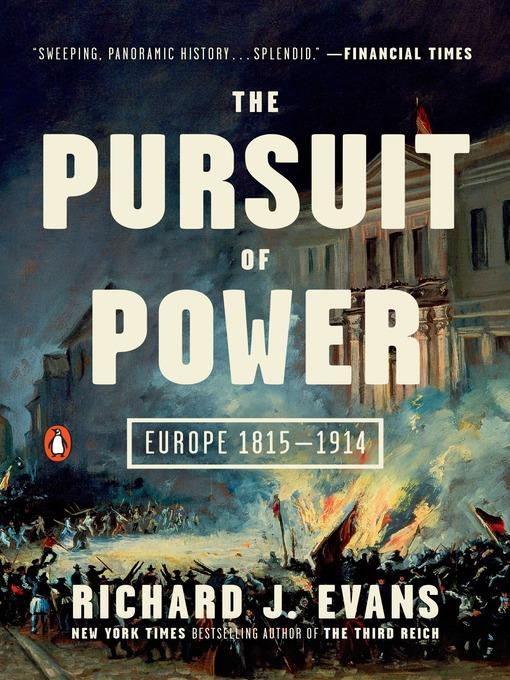
The Pursuit of Power
Europe 1815-1914
کتاب های مرتبط
- اطلاعات
- نقد و بررسی
- دیدگاه کاربران
نقد و بررسی

Starred review from October 3, 2016
Evans, a professor emeritus of history at Cambridge University who is best known for his three-volume history of Nazi Germany, enhances his reputation with this analysis of Europe during the century leading to the Great War. He concentrates on the now-unfashionable issue of power: who had it, who wanted it, and how it was achieved and retained. Evans doesn’t simply focus on war and diplomacy—he defines power broadly to include advances in medicine and technological sources of literal power, from steam to electricity. As the integrated developments of personal freedom, mastery over nature, and the rise of nationalism nurtured one another, Europe became the focus of “a process of globalization” in which capital, goods, people, and ideas flowed “from continent to continent.” This was an “age of emotion” characterized by a passion for knowledge and the pursuit of happiness in an increasingly secularized and gendered environment. Governments and societies responded to the resulting “challenge of democracy” by barreling forward until the catastrophe of 1914, which “was a surprise to almost everyone”—and perhaps should not have been. Evans demonstrates expertise of a broad spectrum of specialized sources and synthesizes his research into a work “designed to be read through from start to finish.”

October 1, 2016
A 100-year survey of European history that moves by transnational themes emphasizing powerover industrialization, class, selfhood, wages, and nature.In this sweeping survey, accomplished British historian Evans (Emeritus, History/Univ. of Cambridge; The Third Reich in History and Memory, 2015, etc.), a winner of the Wolfson History Prize, does not neglect the convulsive changes that occurred among the nonelite across Europe. His forte is his emphasis on how the Republican ideals ignited by the French Revolution, promulgated and corrupted by Napoleon and severely suppressed in many places afterward, never died among a growing class of proletariat and petty bourgeoisie (e.g., in France) who were dissatisfied with the authoritarian policies of the Restoration. While the European powers were reorganizing after the Congress of Vienna, the revolutionary genie was out of the bottle, as evidenced by the subsequent Decembrist uprising in Russia, the Polish officers insurrection, the movement for Greek independence, and the July Revolution of 1830, among others, all creating ramifications that would explode by midcentury. With the emancipation of the serfsAlexander IIs rationale was that it was better to abolish serfdom from above, than to wait until the serfs begin to liberate themselves from belowmany faced new economic hardships (e.g., the decline of the sharecropping system) leading to peasant revolts and famine since most people lived on the land and depended on it for survival. Pauperism increased (see: the Irish famine) and, with the conquering of rail, steam, and speed, the European working class rose as well. With the advent of the second Industrial Revolution, the British imperial lead declined, and the German economy took center stage. With the urbanization of Europe, Evans meticulously follows the accompanying developments in culturein literature (Charles Dickens novels), the adoption of the metric system, the Dreyfus Affair, and the general shrinkage of space. An immensely readable work that considers incremental continental developments up to the outbreak of war in 1914.
COPYRIGHT(2016) Kirkus Reviews, ALL RIGHTS RESERVED.

June 1, 2016
Winner of Wolfson and Fraenkel honors and twice nominated for the Los Angeles Times Book Award, Evans here sweeps through surging British imperialism, upheaval in Spain, the unification of both Germany and Italy, the decline of the Ottoman Empire, and more--plus major advances in the arts and sciences--to offer an ambitious recounting of Europe in the shape-shifting century that came between the Enlightenment and the world wars. The newest volume in the "Penguin History of Europe" series.
Copyright 2016 Library Journal, LLC Used with permission.

























دیدگاه کاربران